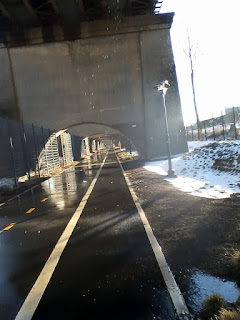Is she opining? Or is she just whining?
That's a fair question to ask, sometimes. I am sure that I blurred, or even crossed, whatever line separates reasoned evaluation from mere complaint.
That line exists somewhere between recalling what was and lamenting that they aren't what they used to be. I will attempt to straddle the line but will probably cross it with what I'm about to say.
Time was when being a celebrity meant being a kind of model for the public. People--especially kids--listened to what they said and tried to emulate them; public figures acted accordingly. Most of the time, anyway. Today, though, it seems that being a celebrity is just a license to wear your silliness or stupidity--or display your vitriol--on your sleeve. Or, as the folks in psychology might say, it gives you permission to live by your id.
During an election season that led to the coronation of hominem qui calumniatur, all some people could talk about was someone who got famous for being famous getting robbed of more than some developing countries own. It is no wonder, then, that a celebrity who, not so long ago, would have been considered a world-class buffoon is considered to be a harmless side-show, or a cartoon cariacture, for embracing a notion that not even illiterates have espoused in half a millenium.
That notion is that the earth is flat. And the celebrity who declared it to be a truth is none other than Shaquille O'Neal.
Now, just as El Presidente and Mrs. Kanye West (and, for that matter, Kanye West himself) have stayed in the public eye by being stupid, vulgar or, at times, simply gross, Shaquille's schtick, if you will, is his goofiness. Even so, his declaration that our blue and green orb is shaped like a flapjack was even more ridiculous than anything else he's done.
To be fair, today "Shaq" walked back his absurd pronouncement. Also, in the interests of fairness, I should point out that he is not the only one "who should have known better" but nonetheless made such a crazy declaration. There is, after all, a worldwide organization for those who still believe the notion that The Tall One embraced for three days.
Now, of course, as cyclists, we didn't need Columbus getting lost or photographs from space to prove to us the Earth isn't flat. Some days, it seems as if we're always pedaling uphill!
That's a fair question to ask, sometimes. I am sure that I blurred, or even crossed, whatever line separates reasoned evaluation from mere complaint.
That line exists somewhere between recalling what was and lamenting that they aren't what they used to be. I will attempt to straddle the line but will probably cross it with what I'm about to say.
Time was when being a celebrity meant being a kind of model for the public. People--especially kids--listened to what they said and tried to emulate them; public figures acted accordingly. Most of the time, anyway. Today, though, it seems that being a celebrity is just a license to wear your silliness or stupidity--or display your vitriol--on your sleeve. Or, as the folks in psychology might say, it gives you permission to live by your id.
During an election season that led to the coronation of hominem qui calumniatur, all some people could talk about was someone who got famous for being famous getting robbed of more than some developing countries own. It is no wonder, then, that a celebrity who, not so long ago, would have been considered a world-class buffoon is considered to be a harmless side-show, or a cartoon cariacture, for embracing a notion that not even illiterates have espoused in half a millenium.
That notion is that the earth is flat. And the celebrity who declared it to be a truth is none other than Shaquille O'Neal.
Now, just as El Presidente and Mrs. Kanye West (and, for that matter, Kanye West himself) have stayed in the public eye by being stupid, vulgar or, at times, simply gross, Shaquille's schtick, if you will, is his goofiness. Even so, his declaration that our blue and green orb is shaped like a flapjack was even more ridiculous than anything else he's done.
 |
| From The Human Cyclist |
To be fair, today "Shaq" walked back his absurd pronouncement. Also, in the interests of fairness, I should point out that he is not the only one "who should have known better" but nonetheless made such a crazy declaration. There is, after all, a worldwide organization for those who still believe the notion that The Tall One embraced for three days.
Now, of course, as cyclists, we didn't need Columbus getting lost or photographs from space to prove to us the Earth isn't flat. Some days, it seems as if we're always pedaling uphill!






